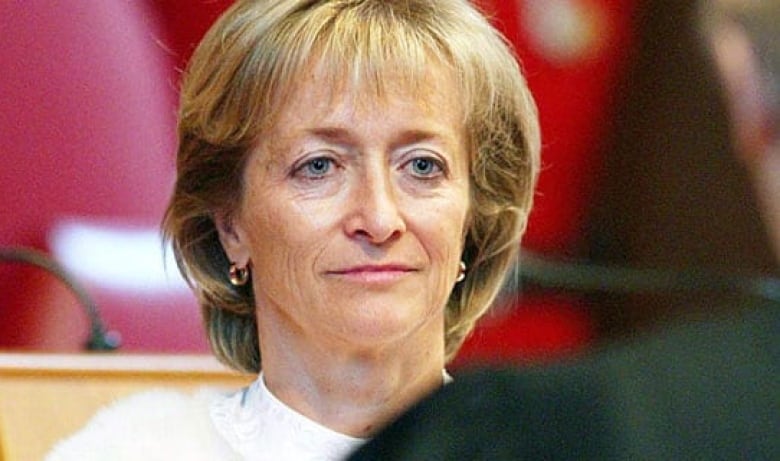Canadian soldier who reported workplace sexual misconduct facing loss of military career

A member of the Canadian Forces who reported sexual misconduct at work in 2015 is facing medical discharge for post-traumatic stress disorder (PTSD) while no charges have been filed against the soldiers accused of assault and harassment.
I tolerated the environment around me because of the love of my country and the love of my work.- Sgt. Vicky-Lynn Cox
Sgt. Vicky-Lynn Cox, who began serving in the military in 1996 and worked as an aircraft structural technician, told The Current's Anna-Maria Tremonti that she loved her job and was worried that speaking out would jeopardize it.
"All I wanted in the beginning is accountability."
"Operation Honour"
In the summer of 2015, Canada's top general Jonathan Vance issued an order to initiate "Operation Honour" to end sexual assault and harassment in the military.

He also vowed to implement all recommendations from a report by former Supreme Court justice Marie Deschamps, who found that sexual misconduct was "endemic" and tolerated by the highest levels of leadership within the military.
"Operation Honour triggered me to come forward," said Cox.
No charges laid
Two years later, as Cox battles mental illness, no charges have been laid against the three colleagues and one superior she has accused of sexual misconduct.
I love what I do and I love service.- Sgt. Vicky-Lynn Cox

The military has not helped her navigate the process for pursuing her grievances, Cox said, despite the encouraging tone from the top.
"I didn't say a thing, and for years and years, I tolerated the environment around me because of the love of my
country and the love of my work. I love what I do and I love service."
Cox also said she was originally told that none of her complaints would be pursued at all, so she responded by taking her concerns up the chain of command on her own.
It just creates an unsafe working environment for the person going to work and serving the country.-Sgt. Vicky-Lynn Cox
Two of Cox's cases have been reopened. She said she also plans to keep fighting for the other cases to be investigated further.
"It just creates an unsafe working environment for the person going to work and serving the country," said Cox.
PTSD diagnosis
Panic attacks and night terrors eventually drove her to medical professionals who diagnosed her with post-traumatic stress disorder in spring 2015, she said.
They're losing a person that still believes in the Canadian Armed Forces values- Sgt. Vicky-Lynn Cox
But those professionals haven't been able to rescue her career. Military brass aren't giving Cox any more time to recover from the mental health symptoms she blames on the abuse, Cox said, and are planning for her medical discharge next May.
"They're losing a person that still believes in the Canadian Armed Forces values, and still wants to help, and is pretty much born to serve her country," Cox said.

'We continue to review her file'
"These struggles are very personal to me and to all of us," said Rear Admiral Jennifer Bennett, director general of the Canadian Armed Forces strategic response team on sexual misconduct that supports "Operation Honour."
"You can only imagine what they went through, what they put up with and, of course, we don't know what we don't know until someone comes forward and speaks up. It takes a great deal of bravery for someone to make a report."
Bennett said she could not comment on the specific details of Cox's case, but "corroborating evidence and having a reasonable assurance when charges are laid that there will be a possibility of prosecution is a challenge in all sexual-based offence cases."
I can only imagine that she feels that we've let her down.- Rear Admiral Jennifer Bennett
Since Cox made her reports, the military has taken new action on the sexual misconduct file with new programs being created to support victims in the process of reporting sexual misconduct, said Bennett.
Cox's release has been postponed and "we continue to review her file," according to Bennett.
"I can only imagine that she feels that we've let her down. But at the same time she has said that it's very stressful to go to work … so we have to make changes to ensure that by having someone continue to serve, we're also not giving them greater stress."
Listen to the full conversation above.
This segment was produced by The Current's Kristin Nelson.